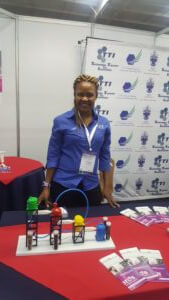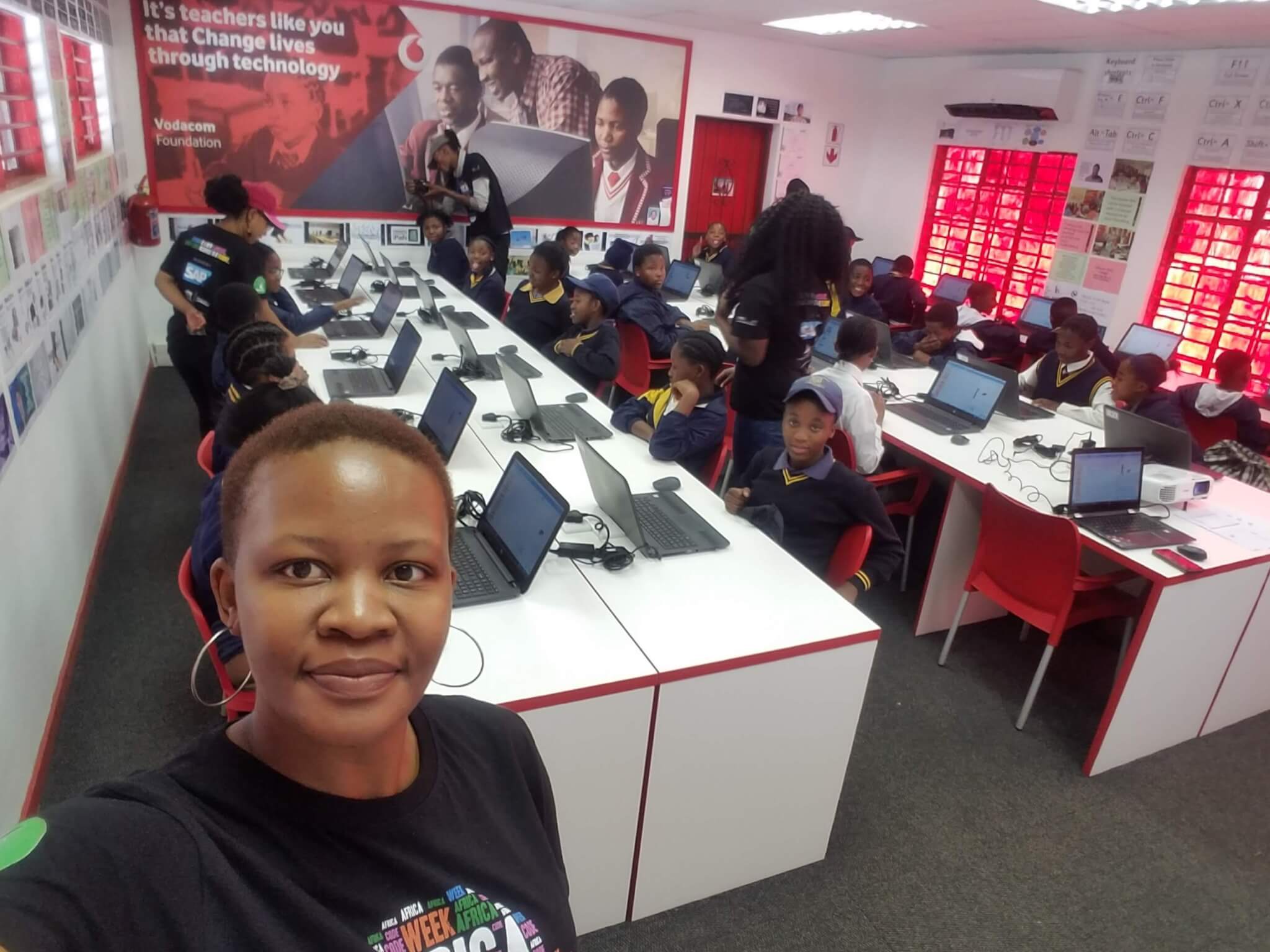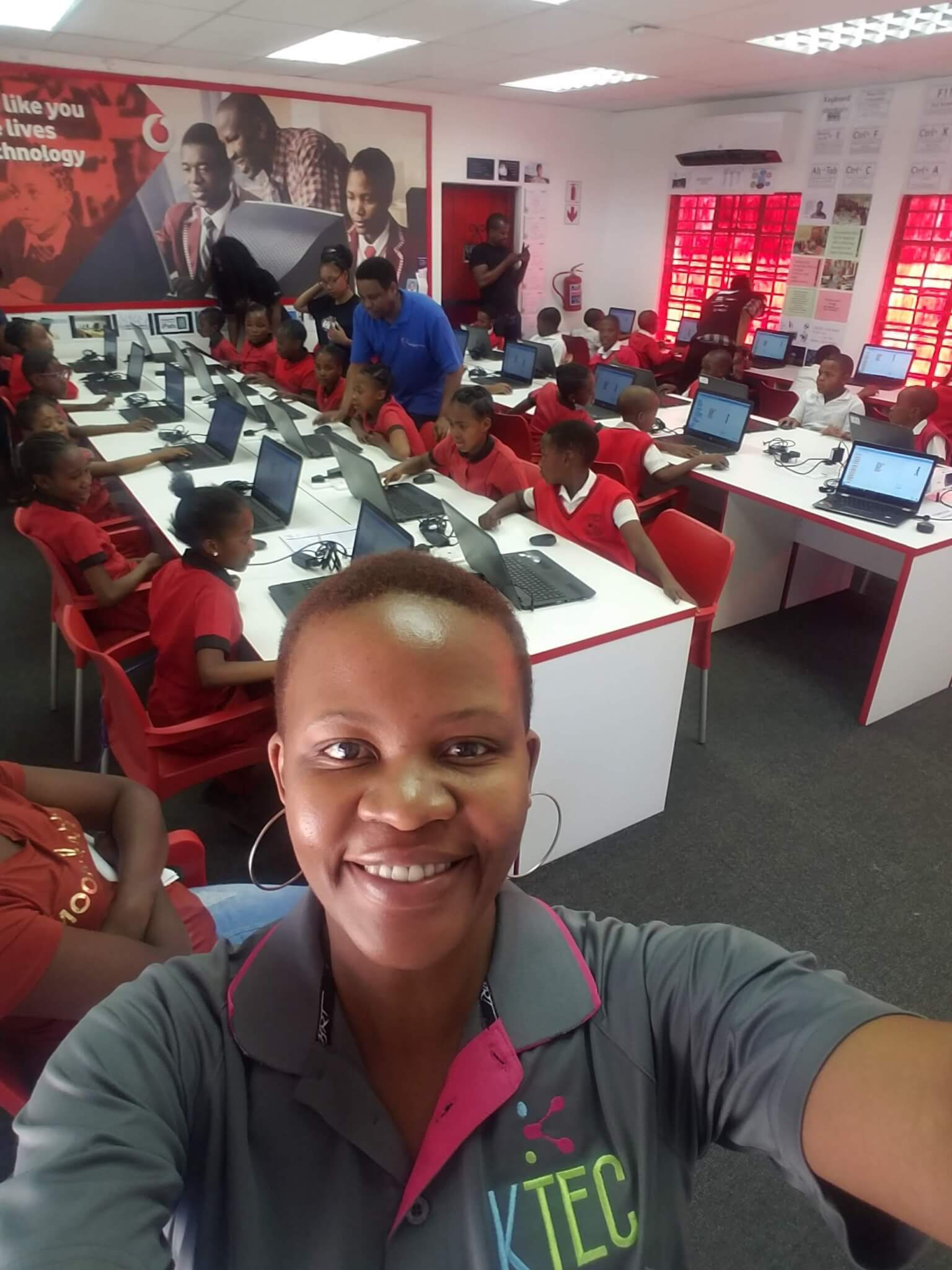Guest post by Reneiloe Seodigeng, 2020-2021 Emerging Leader of South Africa
Editor’s note: Reneiloe Seodigeng’s guest post is part of our series, Emerging Leader Voices, which invites TechWomen Emerging Leaders to share their voice, perspective and experiences with the TechWomen community.
I have never been one for excuses, but having lived my life as a black woman in South Africa, it is obvious to many that there are a few hurdles when trying to achieve your dreams.
South Africa has its own unique societal challenges – poverty, inequality, and a tense racial past, just to name a few. Our history is marred with protests for basic equality in society, be it women’s rights, racial equality, equality in education. And although the country has made great strides, there are still many challenges that we face as a nation. One of them is providing a safe space for black women to excel in any field.
“I found that I began to gain the confidence that I was meant to be there; maybe not to see faces that looked like me, but to be one of the faces that every black child and every girl child needs to see to know that they also have a place there.”
My story begins when I was in primary school, Standard 3 or Grade 6 to be exact. My father was a firm believer in education, and after 1994, when the then-called Model C schools started allowing black children in their schools, he was obviously excited to afford me a better education. The next year, I was enrolled in a school that was predominantly white. With a limited command of the English language, I set out for a “better education.” Although I was excited at the prospect of a good education, it was clear that there were not many that looked like me at the school; adjustment was a challenge. There were language barriers that had to be overcome, and engagement with people of a different race was not very comfortable, to say the least, particularly with teachers from whom I was meant to gain knowledge. These barriers brought a risk of assuming that these places were not meant for me.
I noticed the same trend as I moved into high school, university and then the workplace. There were nuances in how people of different races engaged: while some people were in their element and seemed like they had every opportunity to thrive, other people, like me, felt very much like fish out of water. The time it took to become comfortable enough to thrive was much longer.
Despite these challenges, and with a dedication and need to change the status quo, along the journey I attained achievements that proved that indeed these places are meant for me. They are meant for anyone willing to embrace differences and to do their best to come out on top. I found that I began to gain the confidence that I was meant to be there; maybe not to see faces that looked like me, but to be one of the faces that every black child and every girl child needs to see to know that they also have a place there.
“I got here by getting a good education, and the only way we can ensure our young ones have the opportunity to solve the world’s challenges is to provide them with quality education and encourage them to do their best.”
My favourite word in life is “balance” — it defines everything I strive for in all my endeavours. So, it is  not surprising that the issues I want to tackle with passion are issues that aim to create some sort of balance in the world. When I chose my chemical engineering career, balance was not the first thing I sought. I sought self-sufficiency and being able to afford life’s comforts. It worked well for a while, but eventually my core beliefs screamed out at me to make a difference. One challenge that we have always had in South Africa is water and sanitation. While those who can afford it enjoy dignified sanitation that wastes litres of water, many others have to make do with pit latrines and temporary chemical toilets, in addition to working very hard to obtain water for basic needs. This is why I took an interest in designing a dry toilet in order to reduce water waste and provide a dignified sanitation solution to the poor and vulnerable.
not surprising that the issues I want to tackle with passion are issues that aim to create some sort of balance in the world. When I chose my chemical engineering career, balance was not the first thing I sought. I sought self-sufficiency and being able to afford life’s comforts. It worked well for a while, but eventually my core beliefs screamed out at me to make a difference. One challenge that we have always had in South Africa is water and sanitation. While those who can afford it enjoy dignified sanitation that wastes litres of water, many others have to make do with pit latrines and temporary chemical toilets, in addition to working very hard to obtain water for basic needs. This is why I took an interest in designing a dry toilet in order to reduce water waste and provide a dignified sanitation solution to the poor and vulnerable.
I got here by getting a good education, and the only way we can ensure our young ones have the opportunity to solve the world’s challenges is to provide them with quality education and encourage them to do their best. The fact that I had to wake up at 5am to get on a minibus to get to school in the hope of a better education indicated a lack of balance in education. Why could I not find a good education five minutes from my home? I care about creating balance in education for little black children, especially girls, who look up to me to create a space for them in a world where I once thought I didn’t belong. I do this as co-founder of Kitso Technology Excellence Academy, where we teach learners to take responsibility for their own learning by seeking out resources on the internet to aid their learning objectives.
I heard about TechWomen from a website called Opportunity Desk. I had been looking for opportunities to grow myself and my business, and when I came across TechWomen, I knew it was just the kind of programme I was looking for. Just the thought of meeting 107 other women from different parts of the world was exciting, and I could just picture immersing myself in so many other cultures. Add to that the possibility of visiting a Silicon Valley company for professional mentorship, and it seemed like just what I needed to expand my professional knowledge and skills. Through TechWomen, I aim to develop my skills as a researcher and technology developer. I would like to see my research transform from ideas into sustainable technology solutions in waste, water, and sanitation.
I am inspired by the many things that I would still like to achieve and experience. I believe that we do not have enough time to do and be all that we can be in one lifetime. So, I never miss the opportunity to try new things, visit new countries, learn something new, because every moment I spend breathing is a moment to grow and be closer to what I’ve always wanted to be.




Speak Your Mind